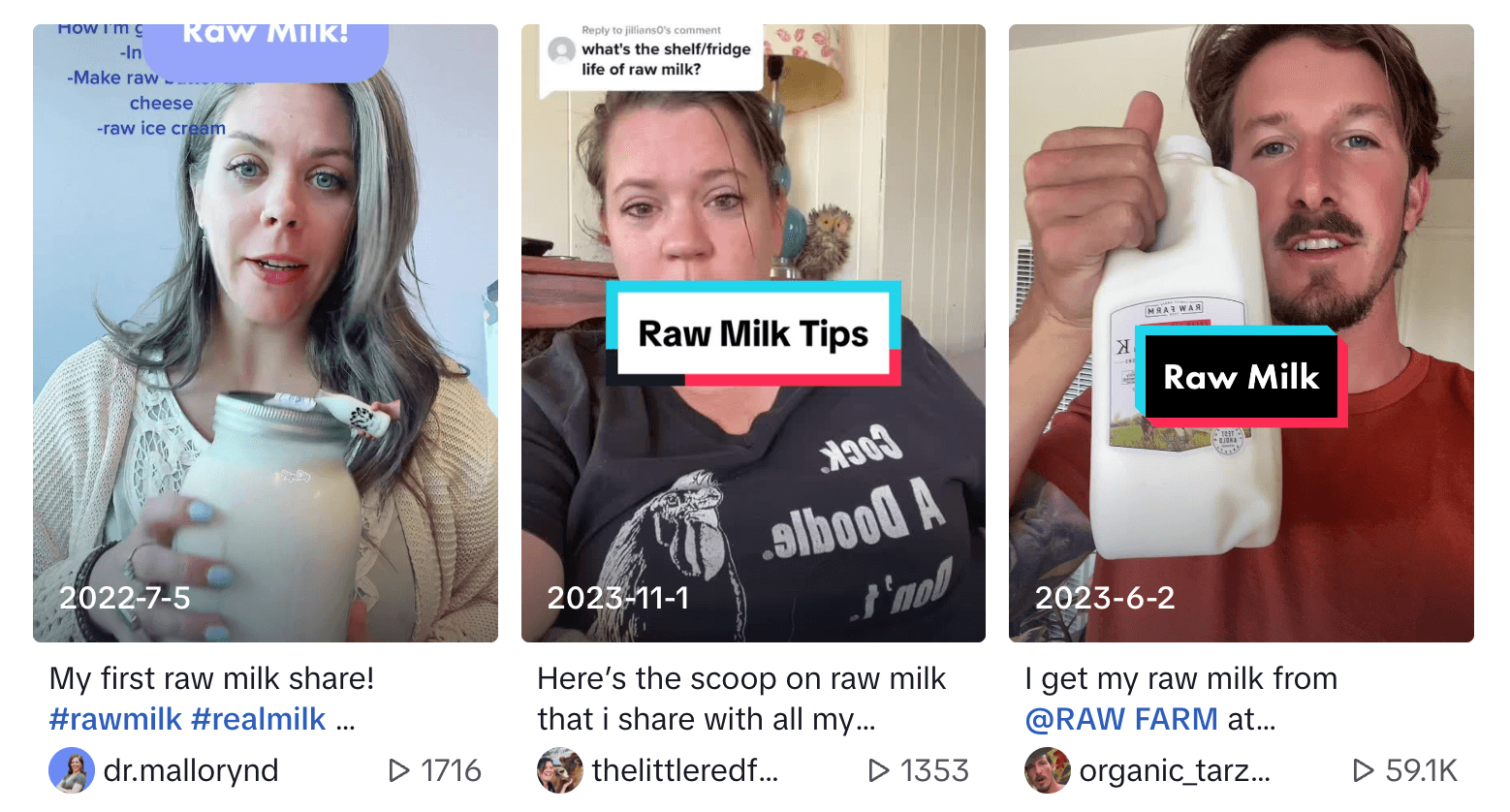What’s the deal with raw, unpasteurized milk? Why isn’t it sold in stores?
Since the mid-1900s, milk sold for human consumption has been pasteurized to eliminate the risk of bacteria like E. coli, Listeria, and Salmonella.
Despite public health regulations, a small percentage of consumers still seek out raw milk. Because unpasteurized dairy products usually can’t be sold in stores, people often buy a 'share' of a cow from a farmer and receive raw milk in return as a workaround (although states have differing laws on the matter).
- Consumers who support the raw milk trend claim health and taste benefits or want to shop hyper-locally for their food and support individual farmers.
Big Picture: While the trend reflects growing consumer interest in minimally processed products and maximizing flavor and freshness of ingredients, the reality is that raw milk sales are unregulated by governing bodies (like the USDA and FDA) and thus carry the risk of foodborne illnesses.
For further reading, this FDA page compiles resources on the risks of raw milk and consumer/seller guidelines in the U.S.


